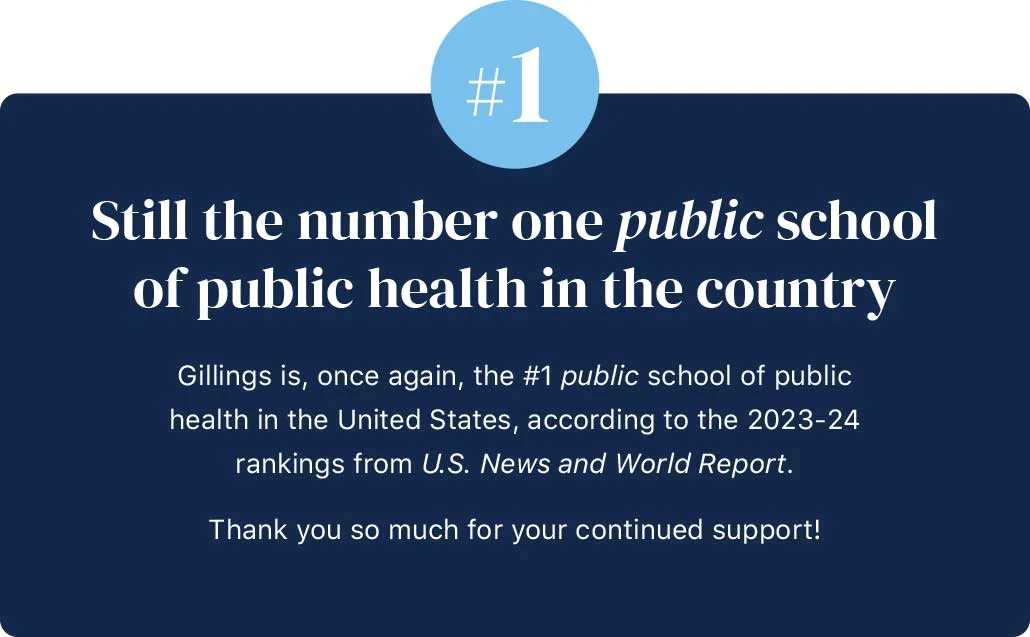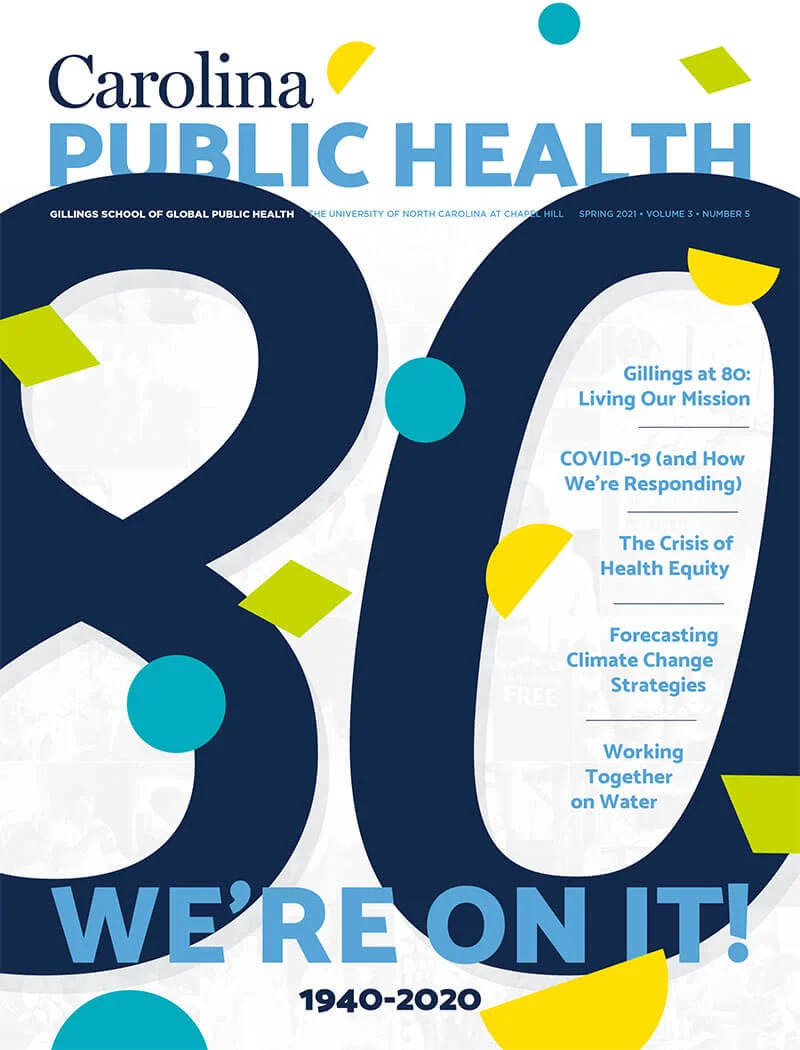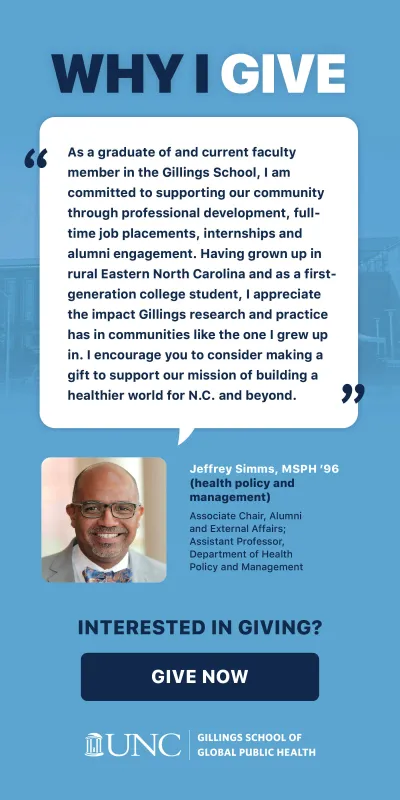Suzanne Maman, PhD, professor and former vice chair of the Gillings School’s Department of Health Behavior, was appointed associate dean for global health.
As the School’s chief global leader and liaison, she is responsible for evolving global strategy and global health initiatives.
“The field of global health is so different than where it was 20 years ago, even 10 years ago! We need to be ahead of the curve when it comes to training researchers and practitioners to continue to lead in the field of global health,” said Maman, who joined Gillings in 2005. “Our focus on local-global and the interdisciplinary emphasis of our training and research will serve us well in terms of continuing to shape future global health leaders.”
Recognized for her research, student mentoring, teaching and service, Maman will continue with her faculty appointment as professor of health behavior and co-lead for the Master of Public Health Program’s global health concentration, which she helped to develop and launch two years ago. She succeeds Margaret (Peggy) Bentley, PhD, Carla Smith Chamblee Distinguished Professor of global nutrition, who served as associate dean for 17 years.
“Our focus on local-global and the interdisciplinary emphasis of our training and research will serve us well in terms of continuing to shape future global health leaders.”
A national and international leader in global health research, practice and education, Maman’s work has focused on the intersection of intimate partner violence and HIV/AIDS. Programs she has developed with global colleagues and community partners have helped mitigate women’s risks from both violence and HIV/AIDS. She has collaborated with the World Health Organization, the United States Centers for Disease Control and Prevention, and other governmental health agencies and educational institutions to advance this work.
“Gillings has so much depth and breadth in the work that we do addressing health challenges outside the U.S., particularly in our flagship international sites including Malawi, Zambia, South Africa and Vietnam. But we also have outstanding examples of work that our faculty, alumni and students are doing in global health here in the United States,” she says. “This includes taking lessons learned from our international work and applying it to work in the U.S. and vice versa, and addressing transnational health issues like COVID that have the same social determinants at their core, such as poverty, gender, race and ethnicity.”
Maman collaborates with colleagues within the School’s Research, Innovation and Global Solutions unit to integrate global initiatives into innovation, entrepreneurship and research, and lead programming that supports the School’s domestic and international students. She also will continue to partner closely with key research centers and institutes and enhance partnerships with global organizations and leaders.
“I believe we need to continue growing our global-local partnerships to expand our global footprint and continue to set us apart from our peers,” she says.




